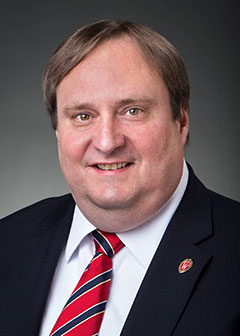
With summer winding down, everyone’s focus is shifting to “back to school.” Whether you are parents with school-aged children, college students preparing for move-in, alumni looking forward to national meetings and reunion weekend, or faculty and staff prepping for a new semester, everyone has a plan for September. For the School of Pharmacy (SoP) an annual “back to school” exercise has been a review of our strategic plan.
The plan is a living document. Faculty and staff joined me this month in reviewing the strategic priorities, metrics achieved, and future goals. At the annual retreat, we reviewed accomplishments and progress on our nine strategic priorities ranging from improving research and support, recruitment and education of students, advancing the practice of pharmacy, and establishing a framework for the SoP to facilitate excelling in all key areas.
There are many highlights from the past year, but I would like to share a few. We celebrated research with new R01 grants and the publication of approximately 250 original journal articles. Associate Professors (CHS) in the Pharmacy Practice Division, Susanne Barnett, Casey Gallimore, and Andrea Porter received the Rufus A. Lyman Award for the best article published in the American Journal of Pharmaceutical Education. Teaching innovation was recognized as Andrea Porter was among 17 peers inducted as a 2017 Teaching Academy Fellow within the UW-Teaching Academy.
New clinical practice models worked to advance the practice of pharmacy. The current Secretary of Veterans Affairs, David J. Shulkin, nationally recognized chronic obstructive pulmonary disease (COPD) transitions of care work developed at the William S. Middleton Memorial Veterans Hospital in Madison by Assistant Faculty Associate Ed Portillo, Pharmacy Practice Division.
What’s next? The themes for the upcoming year focus on recruitment, ACPE Standards 2016, and specialization. In alignment with the American Association of the Colleges of Pharmacy, we have been asking ourselves question such as “are we preparing students for the long run? What are new opportunities for pharmacists?” We have been ahead of this trend as we proactively reviewed the curriculum to support our students’ ability to explore areas such as translational research or global health. Building time into the curriculum to allow for more elective credits strengthens the matriculation of specialists vs. generalists, further positioning our graduates to affect change. This change is the Wisconsin Idea at its best—locally and globally, and what the School has done for over 130 years.
As alumni, I invite you to be engaged in our “back to school” planning as we continue to explore great things in the months and years ahead.
On, Wisconsin!
Steven M. Swanson, Dean